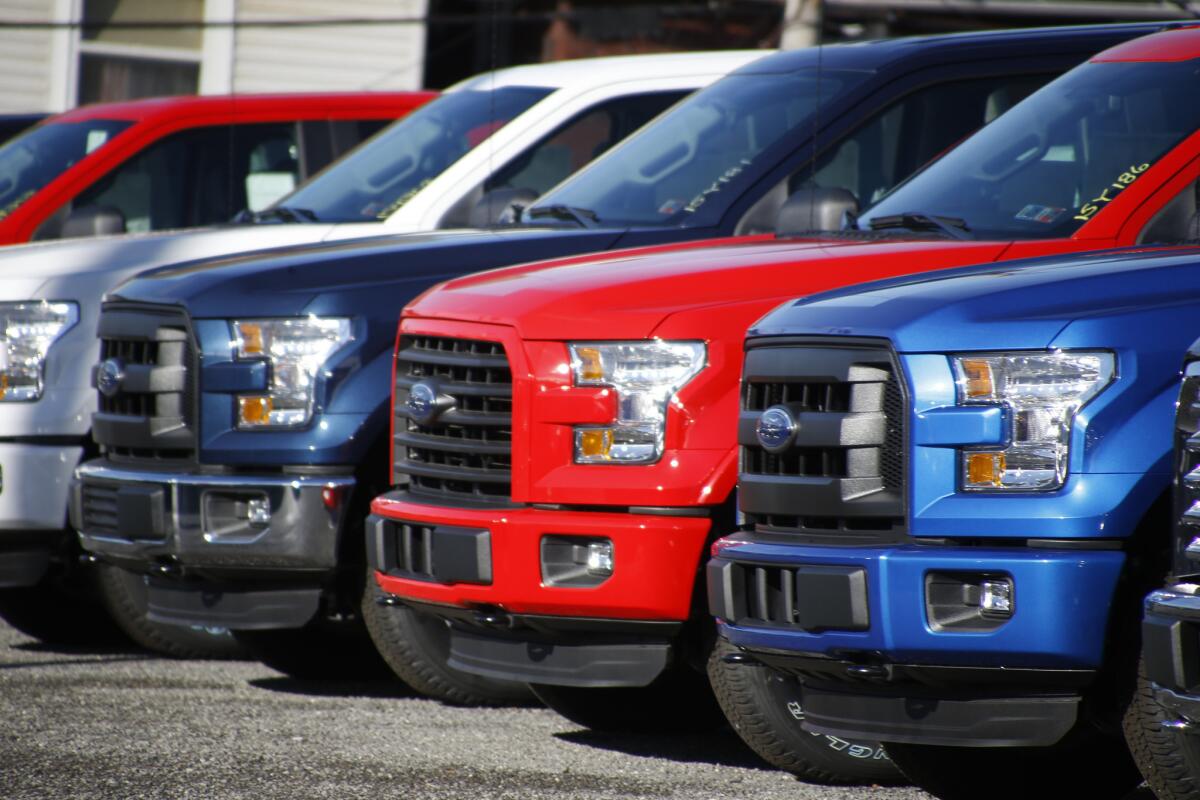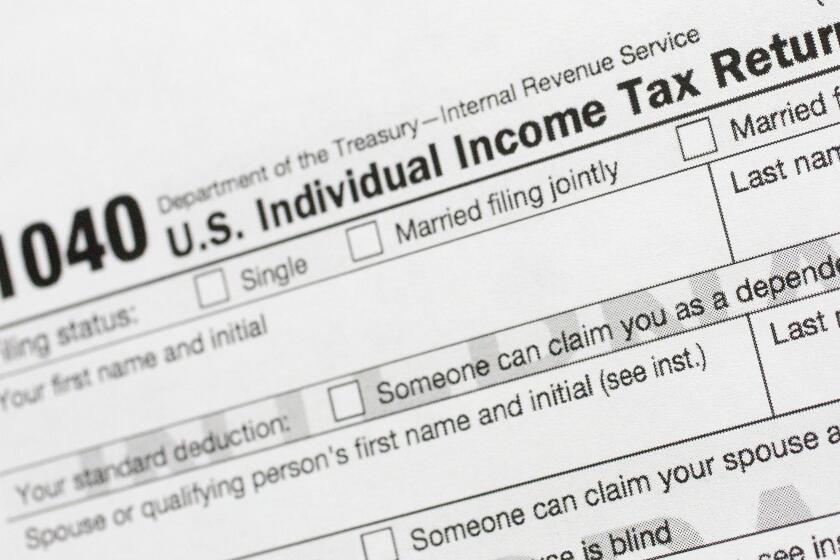California vehicle sales finally stall, falling just short of six years of sustained growth

By the slimmest of margins, California’s remarkable winning streak for sales of new cars, trucks and SUVs has finally come to an end, falling just short of reaching six years of sustained growth.
After improving for 23 consecutive quarters, dealers in the state counted four fewer vehicle registrations in third quarter of this year than they did in the third quarter of 2015 — 531,514 between July and September in 2016 compared with 531,518 in that same period last year.
“It’s razor thin,” said Brian Maas, president of the California New Car Dealers Assn., the Sacramento-based organization that compiles the data. “It’s almost like one of those recount elections.”
The winning streak started in 2010, when auto dealers in California showed their first tentative signs of life in the wake of the Great Recession that saw annual vehicle registrations drop to barely more than 1 million.
By contrast, even with the winning streak ended, 2016 vehicle registrations have already reached 1.57 million.
“It’s like the old phrase: Where you stand depends on where you sit,” Maas said. “If you’re looking at it quarter to quarter, it’s flat. If you’re looking at the overall market compared to where it was seven years ago, it’s doubled.”
Vehicle registrations are on track to exceed the 2 million mark for the second straight year.
“If [the winning streak] does have to come to an end, this is the best possible scenario,” said Jeremy Acevedo, pricing and industry analyst for Edmunds.com. ”Instead of seeing a steep drop-off, the industry reached a new high and now it’s leveling off at that new high.”
The sales trend appears to be shifting from steady growth to flattening or mild contraction, the quarterly report said. Some uncertainty bubbled up after the presidential election, but California dealers expect a combination of low interest rates, increases in personal income and attractive incentives to keep the market robust.
“It’s still so early to tell, but we just had a record closing for the Dow and national sales numbers look strong,” Acevedo said.
California’s third-quarter numbers saw registrations for new cars drop 8.6% but sales for light trucks go up 12.3%, underscoring a trend seen in the state as well as the nation.
Driven in part by lower gasoline prices, customers are buying more pickup trucks and SUVs that offer roominess while boosting their miles-per-gallon averages in recent years.
“You look at their fuel economy and it mirrors that of a midsize car,” Acevedo said. “They’re not these big, imposing, greedy vehicles that we remember.”
The Ford F-Series pickup truck is the top-selling vehicle in the U.S.
Despite the growth in light trucks and SUVs, California motorists still prefer to buy cars.
The state’s top-selling vehicle in the third quarter was the Honda Civic, with 67,593 registrations, followed by the Honda Accord, the Toyota Corolla, the Toyota Camry and the Toyota Prius.
The Ford F-Series finished sixth.
Cheap gas still appears to be hurting the market for electric vehicles, or EVs, even though California accounts for more than one-third of national sales for alternative vehicles.
Hybrid registrations in the state are on a pace to drop by 1% this year while electric vehicle sales are flat.
“The challenge is, if [car buyers] have a more cost-effective model that is an internal combustion engine model that gets relatively close in terms of fuel performance or gas mileage, a lot of consumers aren’t going to make the switch until something changes — either there’s bigger rebates or some kinds of incentives or the cost of fuel changes,” Maas said.
Fans of EVs hope the numbers turn around in the coming months as automakers are set to unveil a new fleet of clean cars.
Chevrolet has been hyping its new electric car, the Bolt, that boasts a range of 200 miles per charge with a list price of $30,000, not including government tax credits. The Bolt will be available within weeks in California and Oregon but the automaker announced it would delay its rollout in the rest of the country until spring 2017.
Chrysler promises to debut the first hybrid minivan, the Pacifica, by the end of the year. Porsche plans to introduce a high-powered hybrid, the Panamera, in the summer of 2017.
Tesla has already taken 370,000 reservations for the Model 3, aimed at taking its brand to the masses with a base price of $30,000 before government incentives. The Model 3 was slated to roll out at the end of 2017, although one analyst this week predicted the debut could be delayed until the end of 2018.
Maas said there are roughly 35 clean vehicles on the market today and auto analysts expect the number to reach 68 by 2021.
“There definitely is a market for the vehicles out there,” Acevedo said. “The manufacturers are still fully committed to this technology.”
ALSO
The era of super-low interest rates might be ending. What’s in it for you?
Boeing illegally given $5.7 billion in tax breaks by Washington state, WTO rules
Stocks open slightly lower on Cyber Monday after week of record highs
More to Read
Inside the business of entertainment
The Wide Shot brings you news, analysis and insights on everything from streaming wars to production — and what it all means for the future.
You may occasionally receive promotional content from the Los Angeles Times.










